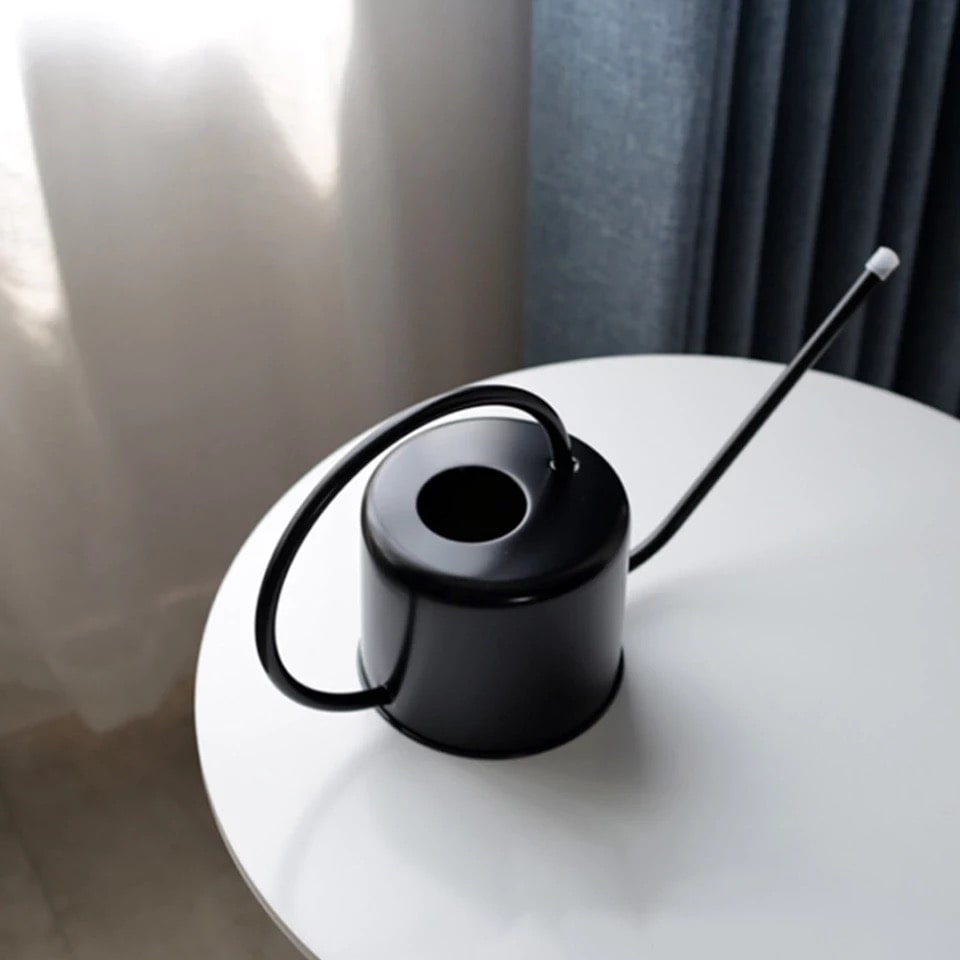
Watering your plants with coffee?
of reading
Are you about to pour the last of your coffee down the sink? Stop!
This black liquid isn't waste; it's brown gold for your plants. Rich in potassium, magnesium, and nitrogen, coffee is an incredible natural stimulant... provided you follow certain rules.
Liquid or grounds? For which plants? Here's how to transform your coffee break into a gardening session.
1. Liquid Coffee: An immediate boost
The rest of your cup contains dissolved minerals that the plant can absorb immediately.
The Rule of Dilution
Never pour straight espresso at the base of a plant! It's too acidic and too concentrated. High doses of caffeine can inhibit growth.
The right recipe: Always dilute your coffee. Use approximately 1 part coffee to 4 parts water in your watering can.

⚠️ Absolute prohibitions
- Never hot: You'll cook the roots. Wait until it's cold.
- Never sweetened: Sugar attracts midges and ferments in the soil (mold).
- Never flavored: Artificial flavors (vanilla, hazelnut) are chemical and harmful to the soil.
The mixing tool
To properly dilute your coffee without making a mess, you need a dedicated watering can. Our Matte Black model stays true to the "Coffee" theme while being ultra-practical.
- ☕ Design: A deep, elegant and modern black.
- 💧 Capacity: Perfect for making your mixtures (Water + Fertilizer).
2. Coffee Grounds: The Protector
The wet powder that remains in the filter is very different from the liquid. It is nitrogen-rich organic matter.

His 3 superpowers:
- Enrichment: Mix it into the surface soil (scrape it in). As it decomposes, it slowly releases nitrogen.
- The Repellent: Sprinkle it around the base of the plant. Its granular texture and odor displease ants, slugs, and snails.
- Compost: It's an excellent compost activator. If you have a worm composter, the worms love it (in moderation).
3. Which plants like coffee?
Coffee is acidic (pH around 5). Not all plants like it!

✅ The "Acidophiles" (They love it)
Go ahead and do it properly:
- Hydrangeas (it enhances their blue color).
- Azaleas and Rhododendrons.
- The Ferns.
- The Rosebushes.
- Tomatoes (coffee grounds at the base help with growth).
❌ To be avoided
Avoid giving it to young shoots (too strong) or to plants that like calcareous soils.
Up to you !
Zero-waste gardening is just a cup away. Once a week, give your plants a little "long coffee" (very long!), and they'll thank you for it.
Getting equipped for watering






herve cote
SUPER bonne idée , et sa fonctionne avec mes piments ; forts et doux.
thierry TERRIEN
peut on traiter les salade avec le jus du mare de café
Pain
Très intéressant
Noret Philippe
Les dosages….. ??? Sans cela…..